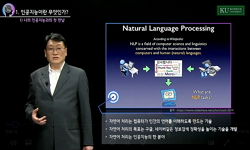<P><B>Abstract</B></P> <P>Wearable devices, such as smart glasses and watches, allow for continuous recording of everyday life in a real world over an extended period of time or lifelong. This possibility helps better un...
http://chineseinput.net/에서 pinyin(병음)방식으로 중국어를 변환할 수 있습니다.
변환된 중국어를 복사하여 사용하시면 됩니다.
- 中文 을 입력하시려면 zhongwen을 입력하시고 space를누르시면됩니다.
- 北京 을 입력하시려면 beijing을 입력하시고 space를 누르시면 됩니다.
https://www.riss.kr/link?id=A107704503
- 저자
- 발행기관
- 학술지명
- 권호사항
-
발행연도
2017
-
작성언어
-
- 주제어
-
등재정보
SCOPUS,SCIE
-
자료형태
학술저널
-
수록면
17-28(12쪽)
- 제공처
-
0
상세조회 -
0
다운로드
부가정보
다국어 초록 (Multilingual Abstract)
<P><B>Abstract</B></P> <P>Wearable devices, such as smart glasses and watches, allow for continuous recording of everyday life in a real world over an extended period of time or lifelong. This possibility helps better understand the cognitive behavior of humans in real life as well as build human-aware intelligent agents for practical purposes. However, modeling the human cognitive activity from wearable-sensor data stream is challenging because learning new information often results in loss of previously acquired information, causing a problem known as catastrophic forgetting. Here we propose a deep-learning neural network architecture that resolves the catastrophic forgetting problem. Based on the neurocognitive theory of the complementary learning systems of the neocortex and hippocampus, we introduce a dual memory architecture (DMA) that, on one hand, slowly acquires the structured knowledge representations and, on the other hand, rapidly learns the specifics of individual experiences. The DMA system learns continuously through incremental feature adaptation and weight transfer. We evaluate the performance on two real-life datasets, the CIFAR-10 image-stream dataset and the 46-day Lifelog dataset collected from Google Glass, showing that the proposed model outperforms other online learning methods.</P>
동일학술지(권/호) 다른 논문
-
- Elsevier
- Ahmadi, Ahmadreza
- 2017
- SCOPUS,SCIE
-
Understanding human intention by connecting perception and action learning in artificial agents
- Elsevier
- Kim, Sangwook
- 2017
- SCOPUS,SCIE






 ScienceON
ScienceON






